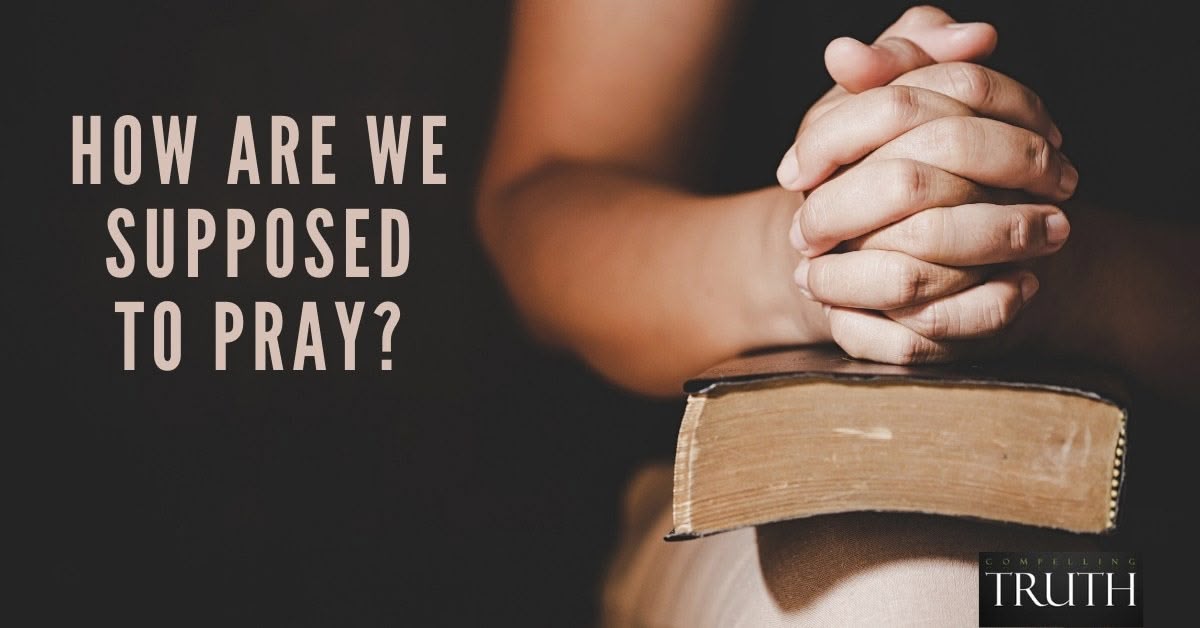Contemplative prayer has two points of reference that must be understood: traditions in historical Christianity and modernized New Age teachings. Unfortunately, both use the term contemplative prayer, which can make the topic confusing and possibly dangerous if not understood properly.
Any kind of "contemplative prayer" or meditation based on an emptying of the mind with the purpose of a mystical encounter with a higher being has its roots in Eastern mysticism. This is the type of "contemplative prayer" being used today by New Age practitioners who do not believe in the One true God and Creator as revealed in Scripture. Associated terms include praying to "the Divine" or "encountering a Higher Power." On that description, no Christian would say they practice contemplative prayer. Any practice that is not founded in the truth of the Bible with the chief goal being the glory of the triune God is dangerous. Prayer is to be directed to no one other than the revealed God of the Bible. Any prayer outside of that is to be avoided.
The other danger with New Age "contemplative prayer" lies in entering a meditative state with the emptying of the mind or rote repetition of a word. This is not modeled anywhere in the Bible and certainly not by Jesus. All prayer modeled in Scripture is active (1 Corinthians 14:15; Philippians 4:4–7), and Christians are called repeatedly to be alert and attentive in their faith (1 Peter 5:8; 1 John 4:1; 2 Timothy 3; Ephesians 6:19–18). Scripture cautions us to take care of minds and pay attention to what we put into them (Ephesians 6:17–18; Romans 12:1–2; 2 Corinthians 10:5; Philippians 4:8). Furthermore, achieving some sort of mystical experience through manipulation of our consciousness or of God is also not biblical.
Where "contemplative prayer" can be healthy and understood from a biblical point of view is in its historical use by believers through the centuries and a de-mystified definition that Christians can choose to embrace with caution and guidance from the Holy Spirit.
"Contemplative prayer" in this Christian sense dates back to the first century and the Desert Fathers, a monastic movement that looked for solitude, austerity, and sacrifice as a way of life to be closer to God and follow in Jesus' footsteps. Much of early Christianity was influenced by the traditions that came out of that movement, including prayer and meditation with God that was slow and focused. This is the practice that Christians today can learn from and employ.
Scripture calls us to be still and know God (Psalm 46:10), as well as to go into our closet and pray (Matthew 6:6–8). Jesus also modeled pulling away from the busyness and crowds in order to pray (Mark 1:35). There is a point at which our words are not needed but an alert listening to the Holy Spirit with an attunement to the revealed Word of God (Romans 8:26–30; 1 Corinthians 2:11–16; 2 Timothy 3:16–17). In this way, we can practice a form of "contemplative prayer" that is centered on God and His Word, being careful with the soil of our minds.
With any spiritual practice, if we cannot find an example in Scripture, we must be cautious. Proverbs 4:23 warns us, "Keep your heart with all vigilance, for from it flow the springs of life." The point at which mysticism and Eastern spiritual practices improperly influence Christians is when anything is added to work of the cross in order to be closer to God. His Word promises us that we have everything we need for a godly life (Ephesians 1:3–14; 2 Peter 1:3–8) and that the mystery of His will has already been made known to us in the gospel. It is in these truths we must have our anchor.
Any kind of "contemplative prayer" or meditation based on an emptying of the mind with the purpose of a mystical encounter with a higher being has its roots in Eastern mysticism. This is the type of "contemplative prayer" being used today by New Age practitioners who do not believe in the One true God and Creator as revealed in Scripture. Associated terms include praying to "the Divine" or "encountering a Higher Power." On that description, no Christian would say they practice contemplative prayer. Any practice that is not founded in the truth of the Bible with the chief goal being the glory of the triune God is dangerous. Prayer is to be directed to no one other than the revealed God of the Bible. Any prayer outside of that is to be avoided.
The other danger with New Age "contemplative prayer" lies in entering a meditative state with the emptying of the mind or rote repetition of a word. This is not modeled anywhere in the Bible and certainly not by Jesus. All prayer modeled in Scripture is active (1 Corinthians 14:15; Philippians 4:4–7), and Christians are called repeatedly to be alert and attentive in their faith (1 Peter 5:8; 1 John 4:1; 2 Timothy 3; Ephesians 6:19–18). Scripture cautions us to take care of minds and pay attention to what we put into them (Ephesians 6:17–18; Romans 12:1–2; 2 Corinthians 10:5; Philippians 4:8). Furthermore, achieving some sort of mystical experience through manipulation of our consciousness or of God is also not biblical.
Where "contemplative prayer" can be healthy and understood from a biblical point of view is in its historical use by believers through the centuries and a de-mystified definition that Christians can choose to embrace with caution and guidance from the Holy Spirit.
"Contemplative prayer" in this Christian sense dates back to the first century and the Desert Fathers, a monastic movement that looked for solitude, austerity, and sacrifice as a way of life to be closer to God and follow in Jesus' footsteps. Much of early Christianity was influenced by the traditions that came out of that movement, including prayer and meditation with God that was slow and focused. This is the practice that Christians today can learn from and employ.
Scripture calls us to be still and know God (Psalm 46:10), as well as to go into our closet and pray (Matthew 6:6–8). Jesus also modeled pulling away from the busyness and crowds in order to pray (Mark 1:35). There is a point at which our words are not needed but an alert listening to the Holy Spirit with an attunement to the revealed Word of God (Romans 8:26–30; 1 Corinthians 2:11–16; 2 Timothy 3:16–17). In this way, we can practice a form of "contemplative prayer" that is centered on God and His Word, being careful with the soil of our minds.
With any spiritual practice, if we cannot find an example in Scripture, we must be cautious. Proverbs 4:23 warns us, "Keep your heart with all vigilance, for from it flow the springs of life." The point at which mysticism and Eastern spiritual practices improperly influence Christians is when anything is added to work of the cross in order to be closer to God. His Word promises us that we have everything we need for a godly life (Ephesians 1:3–14; 2 Peter 1:3–8) and that the mystery of His will has already been made known to us in the gospel. It is in these truths we must have our anchor.



